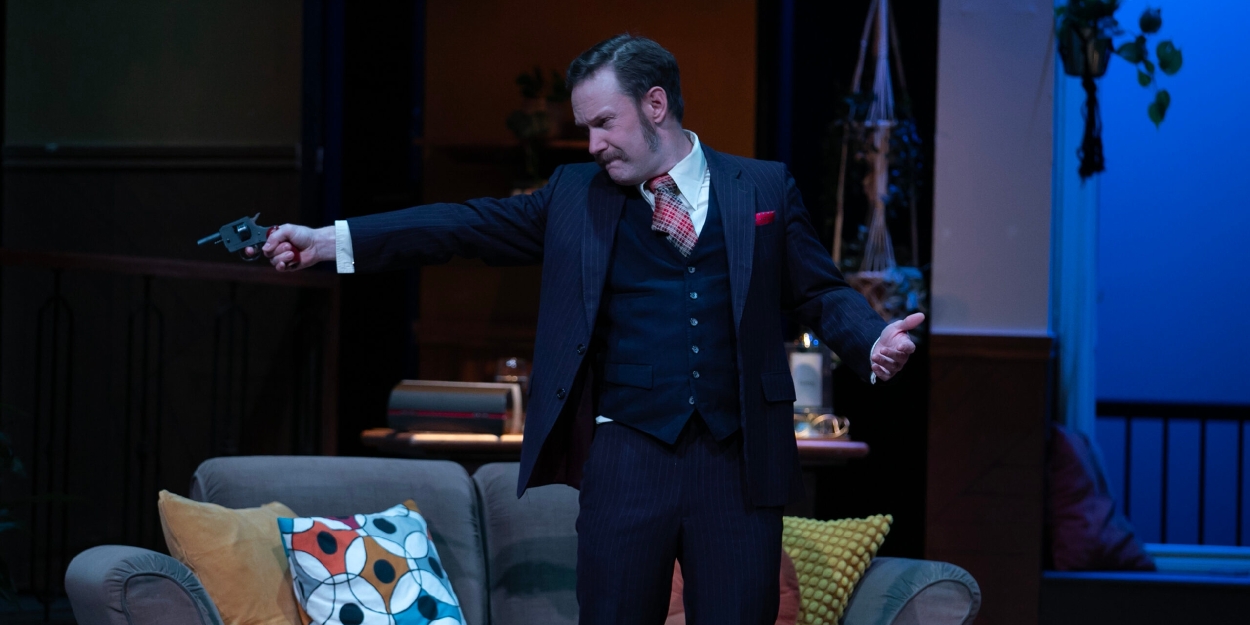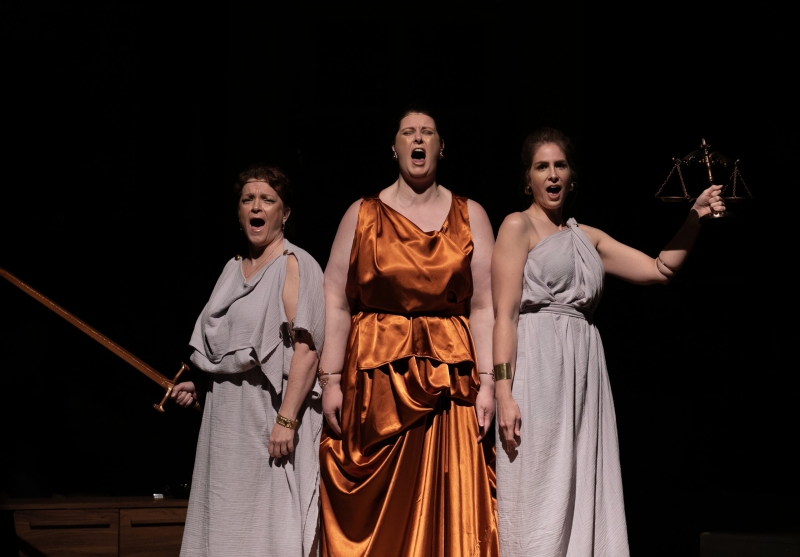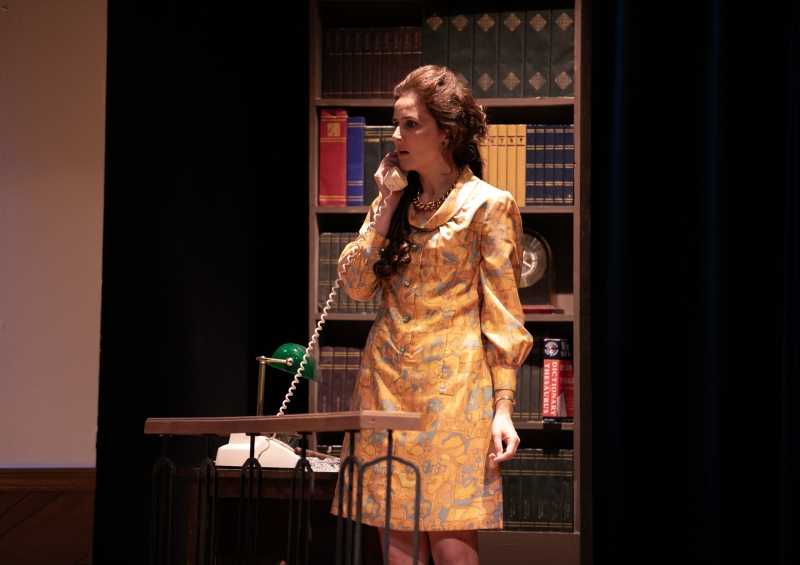Review: GUILTY CONSCIENCE at Ottawa Little Theatre
Even if the ending doesn’t quite hold water, Guilty Conscience is a good suspense with a satisfying conclusion and is in keeping with the season.

Arthur Jamison (David McIntyre) wants nothing more than to kill his wife. A criminal attorney by profession, as he obsesses on the couch in his New York City townhouse, he realizes he has a big problem. He knows that, as Louise’s (Melissa Raftis) husband, he will be the prime suspect, so he must arrange her death to occur in such a way that the evidence points elsewhere, and that his defence doesn’t crumble under cross-examination.
Before carrying out his devilish plan, he carefully enacts the scenario and then imagines himself at trial, pleading his defence. Little does he know that someone else may want to see him dead first.
Guilty Conscience is like a cross between Dial M for Murder and Witness for the Prosecution, two superbly written whodunits - high praise for playwrights Richard Levinson and William Link. As the creators of the television series, Columbo, Levinson and Link are no strangers to detective fiction, and clearly know how to craft a story with twists and turns that keep the audience hooked until the end.
McIntyre’s Jamison is a scoundrel: a corrupt lawyer, serial cheater, and wife-beater who plans to murder his wife in order to avoid paying a divorce settlement. McIntyre is convincing in his despicableness. Raftis is likewise compelling in her role, showing Louise’s initial demure demeaner transitioning into someone more confident. Teresita Thorne, as Jackie the Mistress, stole the scenes they were in. They were exuberant with a touch of flightiness, as called for by the role.

The three Justices (Susanna Doherty, Mylène Freeman, and Judy McCormick) are interesting characters: they each act as a prosecutor, providing opposing arguments to counter Jamison’s version of events. Their white robes are also reminiscent of Greek muses; with their knowledge of Jamison’s guilt, they act at times as his conscience. In the Director’s notes, Ian Gillies noted that, even though the original script called for the Prosecutor’s character to be male, he wanted Jamison’s future to be decided by women, since the character is such a misogynist. This choice is effective and provides the story with even more depth.
The stage design (Lindsay Laviolette and Venetia Lawless) is elaborate, from the painting above the fireplace, to the fully stocked bar cart, and cozy office area all conveying the grandiose lifestyle to which the Jamison family is accustomed. The story called for a change in the décor, which is cleverly handled – although had the change occurred under the cover of darkness instead of immediately before the lights dimmed, the illusion would have that much better.

Photo by Maria Vartanova.
Over the last couple of years, Ottawa Little Theatre has been putting substantial effort into crafting exquisitely designed scenes to fully immerse the actors and audience into the setting of the play. The lighting design (Larry Davies) is well planned and having certain scenes cut to black intensifies the drama and suspense.
With its sharp dialogue and a blurring of the lines between imagination and reality, Guilty Conscience is a well-written suspense and, even if the ending doesn’t quite hold water, it is still a satisfying conclusion. If you are looking for a thriller to end spooky season, you won't go wrong with this Ottawa Little Theatre production.
Be sure to read the program notes in advance for possible triggers, as the subject matter deals with themes of abuse, violence, and suicide. On stage through November 16th, click here for more information or click the link below to purchase tickets.
Reader Reviews
Videos

